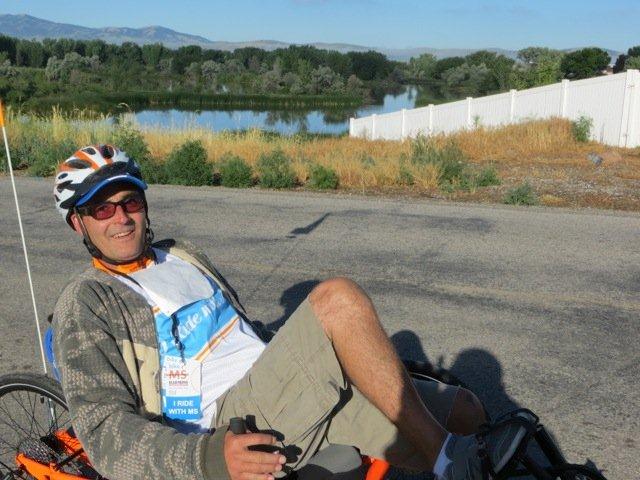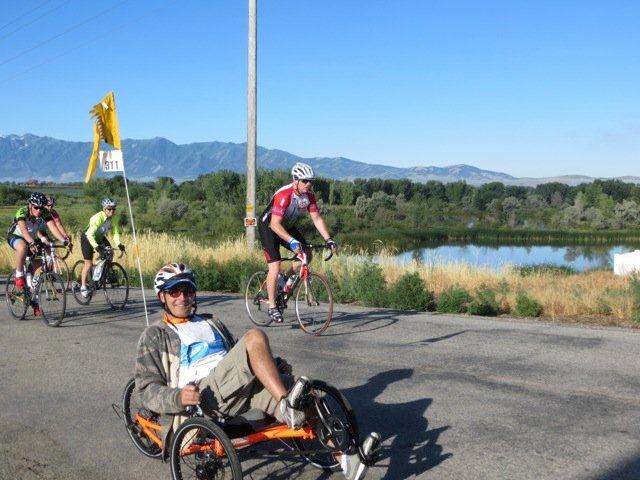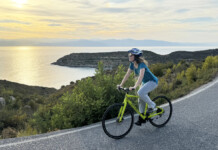By Julie Kiefer and Juliann Fritz — For people with MS, preparing for an athletic event whether it’s a 5K walk or a 100 mile bike ride, is not an option but a necessity. Just as anyone with a history of limited physical activity or a health condition, it is important to consult a doctor before starting any strenuous activity.

Training and being in good shape will help to offset MS symptoms. But it also helps people with MS to better understand the onset of symptoms from exertion so they are better prepared to take counter action to hydrate, fuel up on energizing snacks, or, take a break from activity and the summer sun. Regardless, a stronger and healthier body contributes to overall good health.
Exercise – While exercise is essential to general good health and well-being for anyone, exercise is helpful in managing many MS symptoms. A 1996 study published by researchers at the University of Utah was the first to demonstrate clearly the benefits of exercise for people with MS. Those patients who participated in an aerobic exercise program had better cardiovascular fitness, improved strength, better bladder and bowel function, less fatigue and depression, a more positive attitude, and increased participation in social activities. Since 1996, several additional studies have confirmed the benefits of exercise with MS.
Bike MS offers a general training manual that can help anyone get started with preparing for the event. Many people with MS also work with a physician or a physical trainer knowledgeable about the impact of the disease to help guide them in their exercise regime.
Also, for people with MS, symptoms such as fatigue, poor balance, weakness, and muscle spasticity can make traditional bike riding seem difficult or impossible. There are a variety of adaptations now available, so that someone who wants to ride, might just find wheels that will work including recumbent bikes, electric bikes, handcycles and specially fit bikes.
Heat – Many people with MS experience a temporary worsening of their symptoms when the weather is very hot or humid or they run a fever, sunbathe, get overheated from exercise, or take very hot showers or baths. These temporary changes can result from even a very slight elevation in core body temperature (one-quarter to one-half of a degree) because an elevated temperature further impairs the ability of a demyelinated nerve to conduct electrical impulses.

Regular and good hydration from water as well as sports drinks is important for all active people. Others actions people with MS can take including wearing cooling products like neck wraps, bandanas and special cooling vests as well as lightweight “breath-able” clothing, but also knowing their bodies and when it is time to stop or take a break from the heat is key.
Nutrition – Maintenance of general good health is very important for people with MS or any chronic disorder. A well-balanced and carefully planned diet will help to achieve this goal. MS specialists recommend that people with MS adhere to the same low-fat, high fiber diet that is recommended for the general population.
The MS Society has various programs to help people with MS get started on a path of regular exercise and wellness from better living workshops and informational resources, to exercise programs like yoga and peer support health.
To contact the Utah and Southern Idaho Chapter of the MS Society, visit: http://www.nationalmssociety.org/Chapters/UTU







